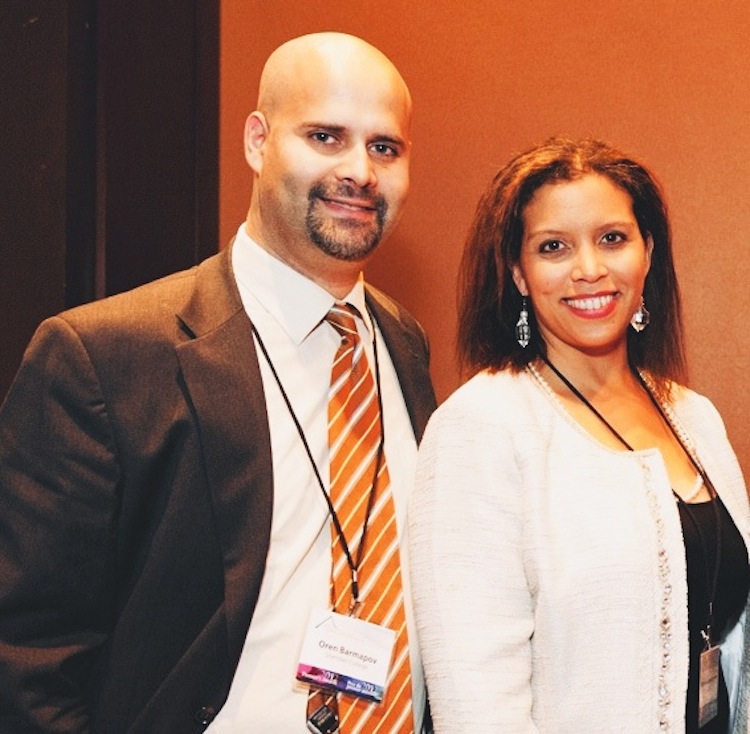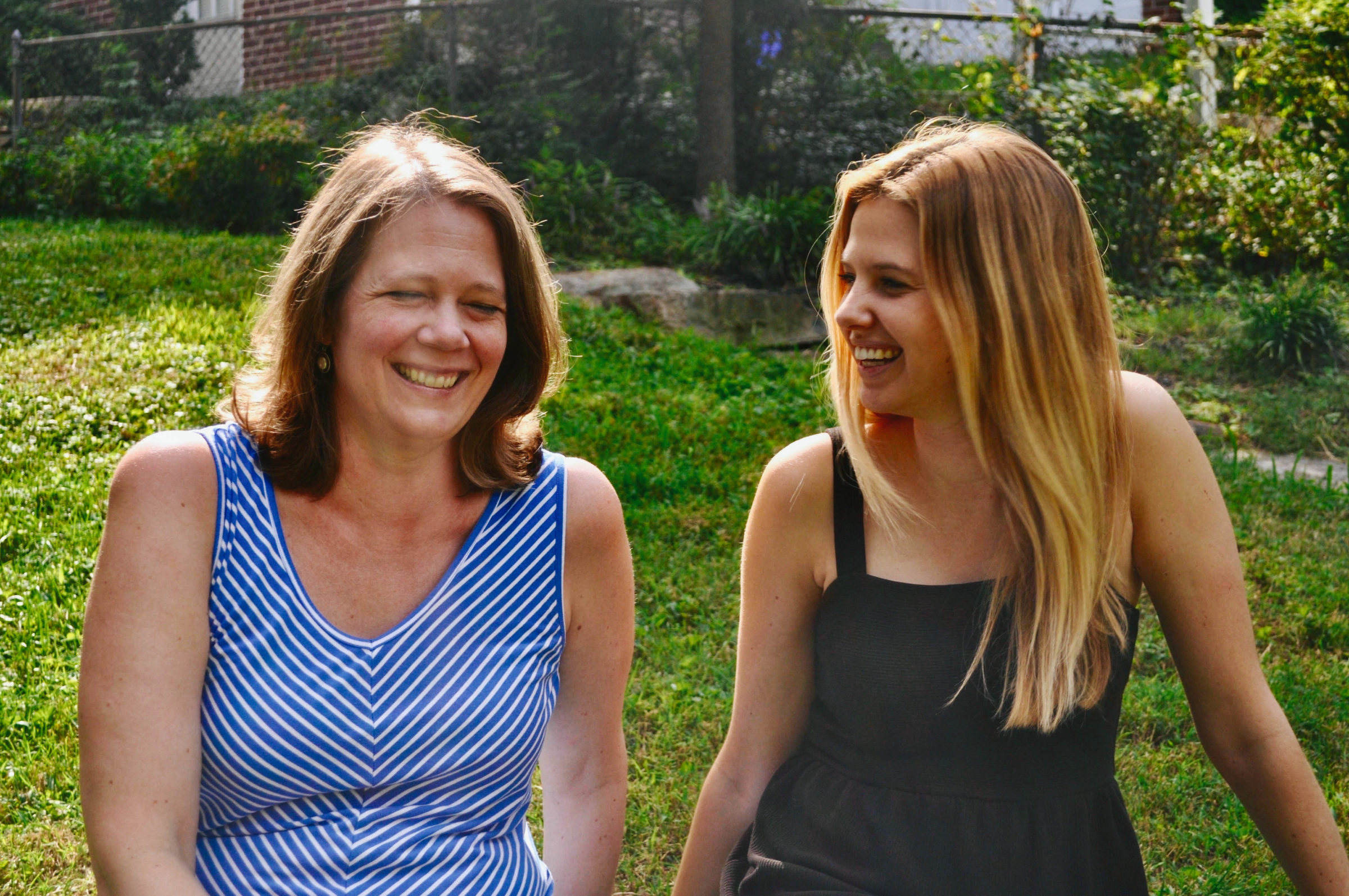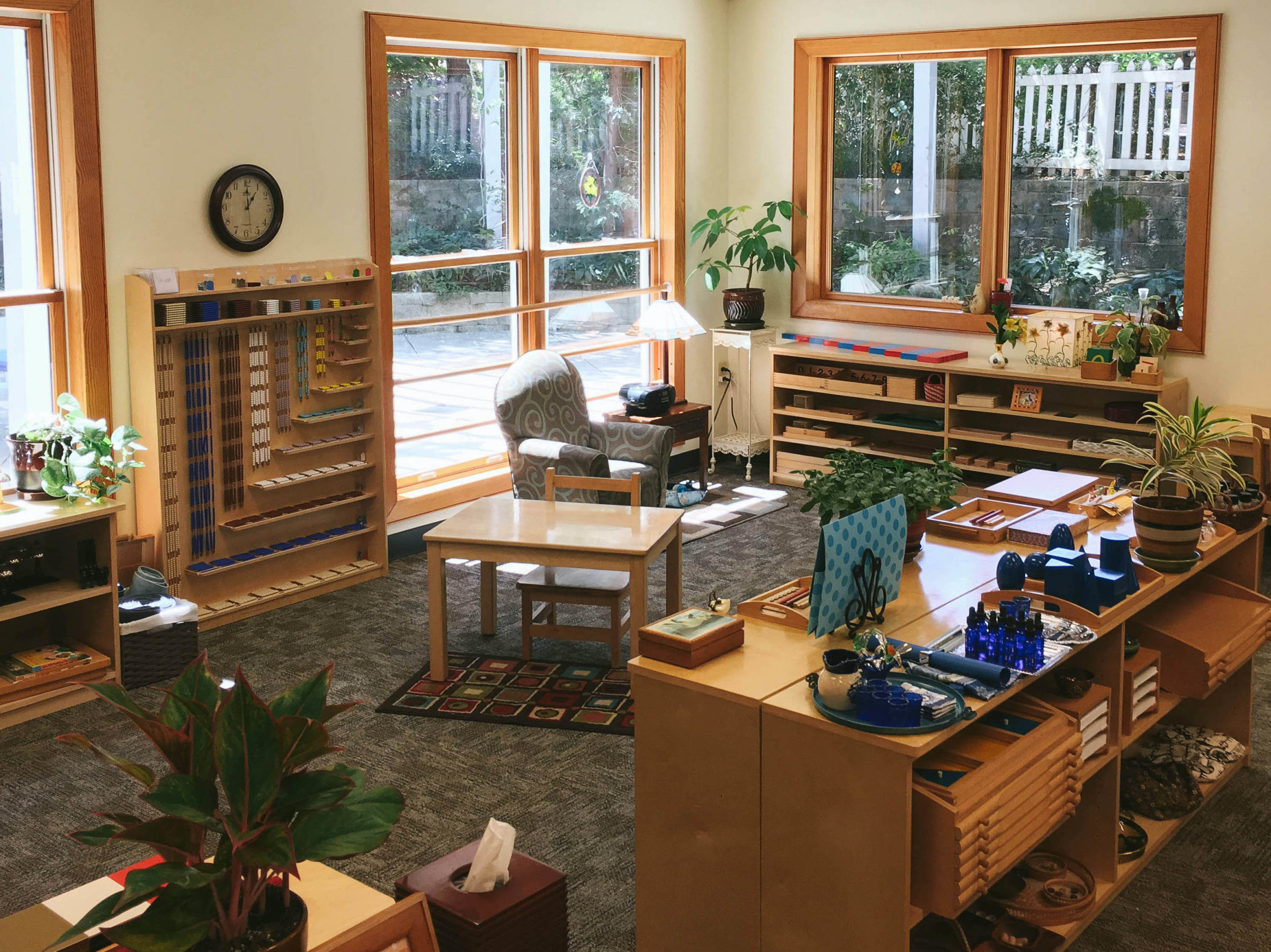Spotlight Michelle Lane
Spotlights
When we firsted started Baan Dek, we contacted Michelle Lane for advice. We had followed her pioneering work, and knew she was the type of advocate for education that we wanted to chat with. She was so helpful & thoughtful in her responses. Needless to say, ever since, she’s been an inspiration to us. A pioneer in the field of “Montessori and autism”, we couldn’t be more pleased to “Spotlight Michelle Lane”. We hope you enjoy the interview. There are some real gems!

Q: Can you tell us a little bit about yourself? Your background, your interests, your dreams?
A: I was born and raised in Toronto, Canada. My mother was an immigrant from Jamaica and my father is Canadian with his background being British and Irish. I was raised believing that we are all equal and to be considerate of others. When I was 19 I started working in the field of autism after graduating from University with a Bilingual B.A. (French and English) in psychology and sociology. During my years working during the day with children with autism, I also worked as a musician during my evenings. I went back to school briefly to start my social work degree when my mother turned me on to a Montessori teacher program at Sheridan College in 2000. I had gone to a Montessori school as a child and I was very interested in continuing my own education on how to work with children. In 2001 I earned a scholar’s award and graduated from Sheridan College with an AMS Post Graduate Certificate in Montessori teaching for ages 3-6.
During my years working exclusively in autism I was fortunate to be trained in ABA (Applied Behaviour Analysis) from the Ontario government. Upon receiving my Montessori certificate I returned to work in autism. I could no longer continue doing the traditional therapy as I had been doing to date. I started designing a program that blended both ABA practices with the Montessori curriculum. In January of 2003 my mother passed away. This pushed me to start my program sooner (I felt that life was too short to wait for anything) and in September 2003 the Toronto Montessori School for Autism was created.
I stopped working as a professional musician at this time and used my love of music through teaching the students the piano. We started with 6 students our first year and moved to approximately 20 students in all.
The school was small but the accomplishments of our students at the time was enough to earn me a Premier’s Award in 2005 for creating the program blend. In 2007 we became a registered not for profit charity and changed our name to The Lane Montessori School for Autism. That same year I got married and was blessed with a three year old stepdaughter. My husband and I had our second child together in 2008 and in 2009 we had our third child. Even though I tried to continue running the school we needed more support financially as well as more trained staff on the blended method. It was with great sadness that in 2010 the board of directors decided to close the school.
Currently I am a very happy mother and wife and find great joy in watching our children learn and grow as this is a very precious time of their lives. Presently I work as a French immersion Montessori teacher in order to be close to our two boys and continue to write books, manuals and lecture on school breaks on the Montessori/ABA blend.
It is hard to say what my dreams are now. I was very happy when I started the school and felt that creating the program was the best thing I could give as my contribution to society. Otherwise my dreams are to continue to have a rich and full life with my family while I continue to share my knowledge on Montessori and autism with others. Currently I started working on my Masters of Health Studies part time as I love to learn.

Q: Now that the hardest question is out of the way: What’s your favorite color?
A: Blue
Q: Do you have a favorite book? How about a film?
A: I have not had a lot of time to read books for leisure over the last few years but one of my favourite books a long time ago was The Seat of the Soul by Gary Zukav. I was reading this book when I was creating the school and it gave me great comfort as well as expanding my ability to create. Currently I am reading a book that one of my closest friend’s gave me called Secret Daughter by Shilpi Somaya Gowda.
As far as a favourite movie hands down it is a French movie called Jean de Florette based on a book by Marcel Pagnol and directed by Claude Berri. This movie came out in 1986. It stars Gerard Depardieu and has an equally wonderful sequel called Manon of the spring. It is about the struggles of a family that move into a new town in which they live and a natural spring. It is a film that looks at humanity and the lack thereof. I have yet to see a movie that has moved me as much as this film.
Q: Can you tell us about your hobbies?
A: My hobbies currently center around taking my children to school and extra curricular activities. Otherwise I enjoy grabbing a coffee with a friend, play dates with the kids (that really is a play date for the mommies), and of course making time to go to the movies or have a nice quiet dinner at home with my husband once the kids go to bed.
Q: When you close your eyes late at night, and imagine waking up and starting a new adventure: what is that adventure?
A: To be honest I feel fulfilled with my current adventure(s) and the one’s I have had to date. Other than our school closing I am quite happy.
Q: Switching to Montessori, what advice do you have for new Montessori schools?
A: Have a realistic budget. I say this only due to my experience, I started my school too early and borrowed a lot of money instead of saving up and ensuring a safety net if things happen (i.e. parent can’t pay bills, funding does not come in etc.). It is important to have people that are passionate about the Montessori program as well as good business management. In addition continue professional development of staff, have team meetings and parent courses on Montessori. The team has to be unified in the school. This is best for the running of the school and for the student’s happiness. I was very fortunate that in our Montessori school for Autism all our staff were for the most part very passionate about the school and the students.
Q: With that in mind, we suppose the same question can be applied to established Montessori schools – or schools in general.
A: If you are an established school continue to invest in your staff. I have seen this in schools where turnover is high. People need to feel appreciated and heard. At the end of the day this is a management issue.
Q: How have things changed since you first got started in the field of education?
A: In Toronto we have a decent public school system and over the last few years they have introduced full day kindergarten. This has affected many regular Montessori schools as they struggle to keep parents in a program when there is a ‘free’ program elsewhere. It is much more difficult to do a traditional Montessori school for new schools that fall under the day nursery act and have to follow other criteria set for daycares that interfere with the vision of the Montessori method. A lot of schools have had to close or are not offering a true vision of what Maria Montessori wrote about.
Also there are some very good autism classrooms in the public school sector that have recently been set up here in Toronto. This is encouraging as most families cannot afford private schools.
Q: Did you have a “Montessori Moment?”
A: I have had two major moments. The first was during my training to be a Montessori teacher and I had my most influential moment during when I realized that this program could be adapted to children on the more severe end of autism with the use of ABA methods. This moment ultimately changed my life.
The second was when we changed Toronto Montessori School for Autism in 2004 to be an ABA/Montessori program instead of an IBI (Intensive Behavioural Intervention) program. IBI is a specific method within the ABA umbrella. It is fast paced and requires a lot of work from the instructor/teacher. We found that the natural work cycle of the child (rolling out a mat, taking the work out, putting it away etc.) was so important to our students and when we allowed for this their confidence really improved dramatically!! It was a true moment when I knew that moving towards Montessori’s vision when the children were ready was a true gift for our kids.

Q: What’s your favorite education quote?
A: There are many but I will share this one from Maria Montessori. “The real preparation of education is a study of one’s self. The training of the teacher…is something far more than a learning of ideas. It includes the training of character; it is a preparation of the spirit.” Maria Montessori (The Absorbent Mind, p.131)
Q: What do you think is the best introduction to Montessori?
A: For me it is being a student (as a child). If you do not have that opportunity learning about Montessori from qualified individuals or seeing a true Montessori school and the children in the environment, there is nothing more inspiring than seeing how happy and confident the children are while they are learning at their own pace.
Q: What continues to inspire you about Montessori?
A: Right now it is seeing how my children are flourishing in the program. What is beautiful about Montessori is that you can continue Montessori philosophy in the home as well. It is a mindset of developing a love of learning. This is empowering and inspiring.
Q: Can you share your thoughts on architecture and Montessori?
A: I do not have much to say on the subject. My father who is a retired architect may have some thoughts. What I will say is that we used my father’s services in developing floor plans for our schools to ensure the proper flow and use of space. My father has designed other schools in the past and we have a design for the Montessori School for Autism with an integrated program that we had always hoped to implement in the future (before the school closed).
Q: We’re very interested in hearing how you pioneered Montessori and Applied Behavior Analysis for children with autism.
A: As mentioned above I started the school when my mother passed based on my experience in ABA and blending the method with the Montessori curriculum. You have to be able to take risks and so I trusted my gut that told me this was a good blend. I put all my knowledge at the time into opening the school and training staff. Many people thought I was crazy to leave the government as we had decent and relatively secure jobs. It was something that I had to do, I can’t explain it but something inside kept pushing me forward even though it was difficult to start the program. I had concerns that it may not be well received in the Montessori community but was very happy when I learned that it was the Montessori community in Toronto that had made the Premier Awards Council aware of my work and thus led to my receiving the Premier’s award in Ontario.

Q: What is it about Montessori that compliments approaches to educating children with autism?
A: The Montessori curriculum is based on the sense training curriculum that Edouard Seguin developed when he started the first school for children with severe mental challenges in 1839 in France. Montessori created her method based on her interpretation of the work of Seguin and his teacher Jean Marc Itard. She further refined her method based on her observations and assessments when she worked with the children of the State Orthophrenic Institute.
The curriculum is based on hands on didactic materials that have a control of error and specified sequence of steps. Applied Behaviour Analysis and more specifically IBI is based on teaching children using a specified sequence of steps. The Montessori curriculum adds an extra level of concrete teaching that has decades of research. In my opinion it is a perfect match. The philosophy of both methods differ somewhat but have the same goal in wanting to see a child become independent.
Q: We just realized that your school closed a few years ago. If you’re able, can you tell us more about this?
A: I mentioned this earlier that I had two children back to back while trying to continue managing three locations and staff. We could have continued to keep the school but then we were faced with a new tax called the HST which would have increased tuition for our parents dramatically. Also, it was difficult to find funding for the Montessori ABA program. One of our sites received some funding but it was still a struggle for many families who did not qualify. One to one programming with a psychologist, therapist, data collection etc. is very expensive even though we were a charity. Also the economy at the time did not help as many organizations were unable to donate. All of these issues led the board to vote to close the school.
Q: How do you feel your work has impacted the community at large?
A: I am truly happy that people still contact me for help with training all over the world. When our school closed I felt heartbroken, truly, as I had put my heart and soul into the school and my family comes from modest means. The fact that my program continues to exist around the world by individuals who have implemented my manuals and books makes me feel as though my work has meaning for the community at large. When you have an idea it is wonderful to see it grow into fruition, we never always know in what way the vision will be, we just have to keep moving forward and I have been fortunate to see my vision move forward in a positive way.
Q: What kind of legacy would you hope to impart to students?
A: This is a difficult question to answer for me as I am not sure if you mean the students that were in our school or adult students that I teach. For our students that were in our program I hope the legacy would be that they know when they are taught differently and with care from their teachers and parents that they are able to achieve things they may not of thought possible. As for adult learners, I hope to provide hope for teachers that struggle with children on the spectrum in their schools as well as providing hope for families who have children on the spectrum. Too many families are struggling to find a good program for their child and the Montessori/ABA program that I created has a full model of one to one therapy all the way to inclusion in a typical Montessori environment, which is the goal.
Q: In what ways do you envision the future of education?
A: I hope that more educators will work together to create inclusion models for all children and meeting the specific needs of each child. It is through working together that we will be able to create peace within our children and hence more respect and kindness towards one another.
Written by:
Bobby George



